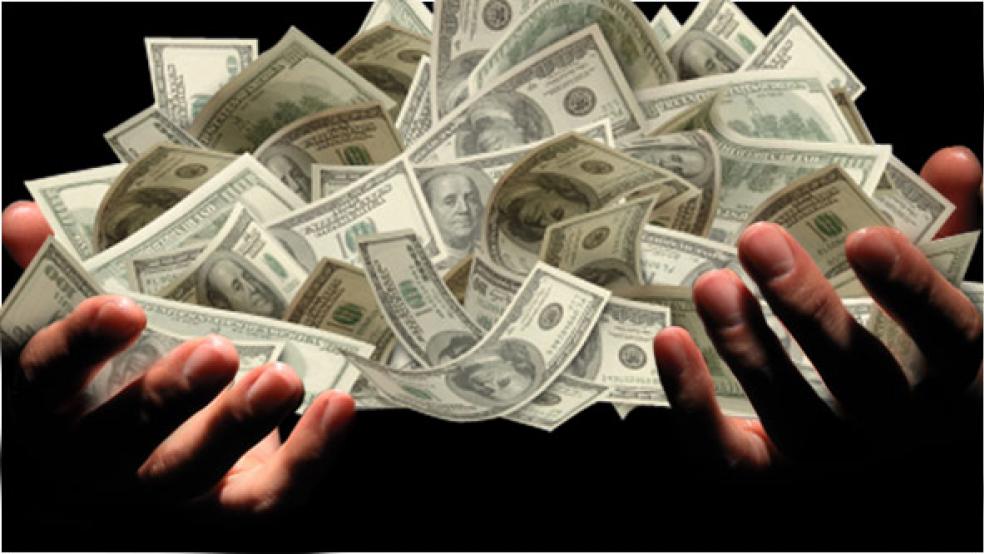Nicholas Kristof recent reignited the debate over liberal bias in academia with his claim that “universities risk becoming liberal echo chambers and hostile environments for conservatives.” He does single out my profession, economics, as being better than most social science departments in representing conservative viewpoints:
“Economists remain influential. I wonder if that isn’t partly because there is a critical mass of Republican economists who battle the Democratic economists and thus tether the discipline to the American mainstream.”
But the extent to which conservative ideology is represented within the profession is much larger than a simple tally of the number of conservatives versus liberals indicates.
Related: Why College Professors Are Afraid to Teach Millennials
The conservative bias in economics begins with the baseline theoretical model, what is often called “Economics 101.” This model of perfect competition describes a world that agrees with Republican ideology. In this model, there is no role for government intervention in the economy beyond setting the institutional structure for free markets to operate. There is nothing government can do to improve the ability of market to provide the goods and services people desire at the lowest possible price, or to help markets respond to shocks.
The great majority of economists, Democrats and Republicans alike, believe in the ability of markets to perform the “magic” of coordinating the desires and productive activity of millions and millions of people without the need for a central authority to guide them, and to provide the correct incentives for innovative, robust economic growth. Thus, in order to make the case that there is a role for government, one must first provide a strong case that there is a significant market failure that results in a departure from the assumptions needed for markets to work their magic, and then explain how government policy can improve upon the outcome.
That is done all the time within the profession. Although economists believe in markets in general, they are continuously identifying instances of market failure and then designing government policy responses that can make these markets work better. In fact, the standard model used in macroeconomics incorporates a particular market failure that plagues a broad swath of markets – wage and price rigidities – into the basic theoretical framework. This model, along with supporting empirical evidence, provides a basis for the use of monetary and fiscal policy to improve the performance of the macroeconomy.
Related: Are Economists Driven by Ideology or Evidence?
But even though economist have made a strong case for government intervention and regulation in many cases, and for the use of monetary and fiscal policy to stabilize the macroeconomy, the public debate tends to fall back on simple Economics 101, keep the government out of the way discourse.
This has been attributed to “economics writers [who] present Econ 101 stuff about supply, demand, and how great markets are as gospel, ignoring the many ways in which economists have learned to qualify those conclusions in the face of market imperfections.” But I think it goes beyond economics writers who shape public opinion with standard Economics 101 arguments they remember from their principles of economics classes.
There is a substantial and influential block of mostly conservative economists who always stand ready to defend the idea that markets work best when they are left alone. They will acknowledge that market imperfections exist, but they argue that given enough time market forces will fix the problem. If government tries to help through regulation or more direct measures, it will undermine these forces and make things worse.
Even when there is broad based agreement that government action can improve the performance of the economy, as there is with monetary policy, conservative economists argue that the Fed should commit to a specific policy rule that places restrictions on how monetary policy can be used. When it comes to fiscal policy, which has a solid theoretical and empirical foundation, they argue that government incompetence will cause more harm than good. Better to do nothing at all unless it’s tax cuts for the wealthy – somehow the government will get that right.
Related: Facebook's CEO Meets Conservatives Over Bias Controversy
The result is that Republican policymakers in Congress, or economics writers with a conservative outlook, can appeal to academic arguments to support their ideological, small government, tax-cutting, deregulation agenda. This leaves the public thoroughly confused even when there is substantial agreement within the economics profession, and gives political cover to Republicans in Congress who stand in the way of government taking an active in overcoming market failures and managing the macroeconomy.
The conservative viewpoint is accorded significant weight despite the fact that it is often a minority viewpoint. There is strong evidence that the minimum wage has much smaller effects on employment than the simple competitive model implies, social insurance deters work far less than the models predict, taxes on the wealthy do not harm economic growth, monopoly power is distorting markets, wages do not always rise with productivity, etc., etc., but it’s hard to overcome the cover conservative voices provide as they are echoed loudly in the right wing media.
Republican economists may help to “tether the discipline to the American mainstream” due to their ability to shape what the public believes, but it ought to be the other way around. What is needed is for public opinion to be tethered to the mainstream of economics.






